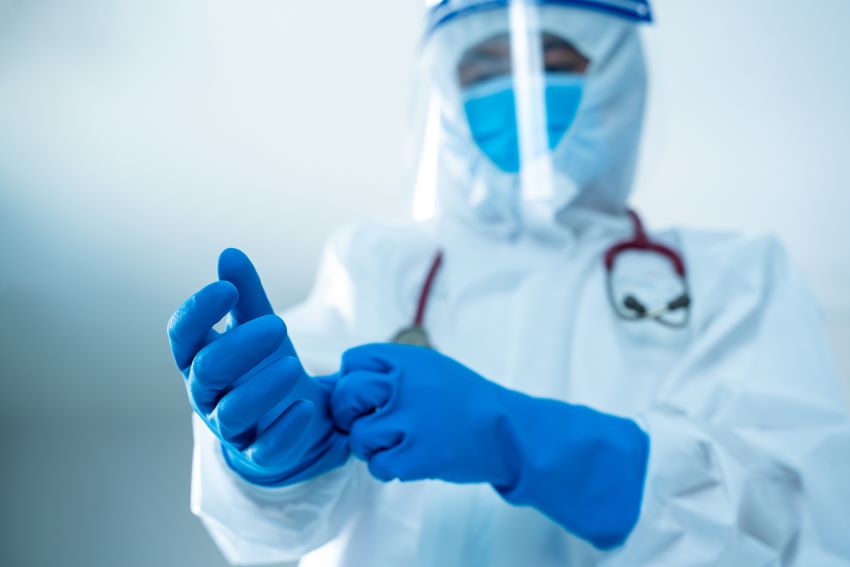The same infection, prevention and control measures normally used are expected to be applied by death care workers when handling persons who have died from COVID-19.
Acting Chief Medical Officer, Dr. Anton Best, emphasised this today as he addressed a press conference chaired by COVID-19 Public Advisor, David Ellis.
Noting that this was the recommendation from the Ministry of Health and Wellness, he stressed that when persons with COVID-19 died, they were still infectious, and there was a need to protect the death care workers.
“So, the standard procedures of infection, prevention and control, wearing PPE (personal protective equipment) apply. What also applies to the management of the dead body is that autopsies are not done if the person has definitely died from COVID,” he said.
Elaborating on why autopsies are not done, Dr. Best said: “It’s because you may do something called aerosol generation, where you get the COVID-19 particles or virus particles in the air and then that puts the death care workers at risk.”
Dr. Best, who was participating in the briefing with Consultant for Home Isolation, Dr. Adanna Grandison, pointed out that the latter worked on this particular area – going to homes of persons who died or were suspected cases of COVID-19, and to funeral homes to undertake swabs.
As he stressed it was very important for the Ministry to know how persons died, he added: “We can do a rapid test on a dead body and we can do the standard PCR test for COVID-19 on the dead body.”
Dr. Grandison, in supporting the acting Chief Medical Officer, said: “For those persons who have died at home, and we are not sure of their status, we are concerned that this person may be COVID positive, because it has implications for not only the person that has died, in terms of knowing the public health information, but certainly it has implications for the persons who are living within that home and how we help them afterwards.”

She pointed out that persons were swabbed on site, or when their body was transported to the funeral homes. Elaborating on what occurs, she said: “Those cases are actually expedited through the public health lab, so that we are fully aware of what additional measures need to be taken. From there, that data is sent back to the Coroner’s Office where the coroner can make an informed decision certainly to protect not only the death care workers at the funeral home, but also the pathologist in terms of documenting or doing an autopsy.”
While stating that autopsies were not performed on COVID-19 positive dead persons, Dr. Grandison declared: “So, really swabbing and detection of COVID positivity status is all about safety and also the de-escalation of a situation so that it does not impact the other persons around you. And, if need be, the escalation of your care so that we can treat you as appropriately and as safely as possible, so that you can return to community.”
She also mentioned that open caskets were not allowed at funerals when persons died from COVID-19. “You have persons who are there in the space with a body who can potentially become infected, and we don’t want that,” she explained, noting that the Ministry tries to expedite those cases in order to get them buried as quickly and as safely as possible.
The consultant added that it is understood family members would need closure, and said: “We try to accommodate as much as possible, but certainly not an open casket because we cannot expose our death care workers and we do not want to expose family members.”
